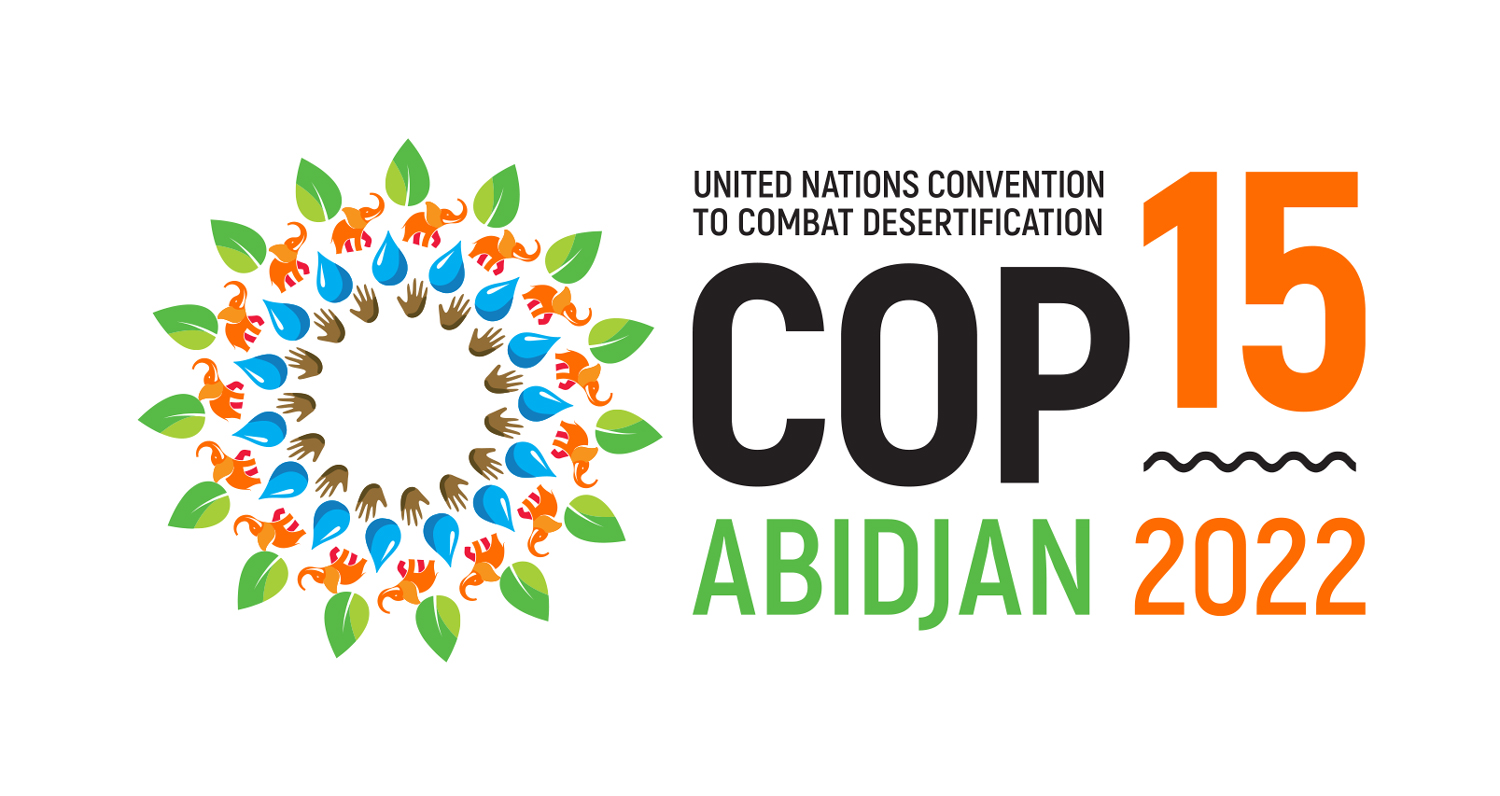15th Session of the Conference of the Parties to the UN Convention to Combat Desertification | Abidjan, 9-20 May 2022

date: 01/07/2022
The COP15 theme: ‘Land. Life. Legacy: From scarcity to prosperity' is a call to action to ensure that land continues to benefit present and future generations.
At the closing ceremony, Patrick Achi, Prime Minister of Côte d’Ivoire, said:
‘Each generation faces this thorny question of how to meet the production needs of our societies […] without destroying our forests and lands and thus condemning the future of those on whose behalf we endeavour.’
Ibrahim Thiaw, UNCCD Executive Secretary, said:
‘Meeting against the backdrop of multiple global challenges, including the worst drought in 40 years in Eastern Africa, as well as food and economic crises fuelled by the ongoing COVID-19 pandemic and conflicts, countries have sent a united call about the importance of healthy and productive land for securing future prosperity for all.’
This two-week meeting on the future of land management drew nearly 7 000 participants, including Heads of State, ministers, delegates from the UNCCD’s 196 Parties and the European Union, as well as members of the private sector, civil society, women, youth leaders and media. A united global pledge to boost drought resilience and invest in land restoration for future prosperity was the main outcome.
Declarations issued during the COP:
- The Abidjan Call issued by the Heads of State and Government attending the Summit hosted by Côte d’Ivoire President Alassane Ouattara on 9 May.
- Abidjan Declaration on achieving gender equality for successful land restoration, which emerged from the Gender Caucus chaired by First Lady Dominique Ouattara.
- The COP15 ‘Land, Life and Legacy’ Declaration, which responds to the findings of the UNCCD’s flagship report, Global Land Outlook 2, a five-year study with 21 partner organisations, and with over 1 000 scientific references. Released 27 April, it reported that up to 40 % of all ice-free land is already degraded, with dire consequences for climate, biodiversity and livelihoods.
New commitments made:
- Accelerate the restoration of one billion hectares of degraded land by 2030 by improving data gathering and monitoring to track progress against the achievement of land restoration commitments and by establishing a new partnership model for large-scale integrated landscape investment programmes.
- Boost drought resilience by identifying the expansion of drylands, improving national policies and early warning, monitoring and assessment; learning and sharing knowledge; building partnerships and coordinating action; and mobilising drought finance.
- Establish an Intergovernmental Working Group on Drought for 2022-2024 to look into possible options, including global policy instruments and regional policy frameworks, to support a shift from reactive to proactive drought management.
- Address forced migration and displacement driven by desertification and land degradation, by creating social and economic opportunities that increase rural resilience and livelihood stability, and by mobilising resources, including from the diaspora, for land restoration projects.
- Improve women’s involvement in land management as important enablers for effective land restoration, by addressing commonly encountered land tenure challenges by people in vulnerable situations, and collecting gender-disaggregated data on the impacts of desertification, land degradation and drought.
- Address sand and dust storms and other escalating disaster risks by designing and implementing plans and policies including early warning and risk assessment and mitigating their human-made causes at the source.
- Promote decent land-based jobs for youth and land-based youth entrepreneurship and strengthen youth participation in the UNCCD process.
- Ensure greater synergies among the three Rio Conventions, including complementarities in the implementation of these treaties through nature-based solutions and target-setting at the national level.
Reports launched during COP15:
- ‘Drought in Numbers 2022’: a compendium of drought-related facts and figures, including a 29 % a rise in droughts since 2000 and a projection that three-quarters of the world’s population will be affected by drought by 2050 unless urgent action is taken.
- Southern Africa thematic report: a new technical guide, released as part of the Global Land Outlook series, that helps shape a tailor-made response to commonly encountered land tenure challenges via a range of national plans, legal frameworks, strategies, and action programmes addressing land degradation.
- Differentiated Impacts of Desertification, Land Degradation and Drought on Women and Men: a study that has revealed that women are twice more affected by these issues, and that drought and land degradation tend to increase the burden of unpaid care and domestic work shouldered by women and girls.
- Sand and Dust Storms Compendium: Information and guidance on assessing and addressing the economic, environmental and health risks of these increasing phenomena.
- Business for Land initiative: aimed at bringing visibility to the commitments made by participating companies towards land degradation neutrality, both in supply chains and CSR activities.
- The Sahel Sourcing Challenge to enable communities growing the Great Green Wall to use technology to monitor progress, create jobs and commercialise their produce, such as baobab juice, moringa oil and shea butter.
- Droughtland, a new UNCCD public awareness campaign that aims to showcase solutions and rally global action on drought. The campaign will also be featured during UN Desertification and Drought Day (17 June), hosted this year by Spain.
The next meetings of the Conference of the Parties to the UNCCD and its subsidiary bodies will be held in Saudi Arabia (COP16 in 2024), Mongolia (COP17 in 2026), and Uzbekistan (Committee for the Review of the Implementation of the Convention in 2023).
More information here:
